Afro-Brazilian culture drives transformations in Recife’s favelas
Despite suffering some persecution, the Cambinda Estrela Cultural Center has been promoting actions to value black culture and education for children, young people and adults for over 16 years.


Credit: Disclosure
By: Eduarda Nunes – Lupa do Bem / Favela em Pauta
As part of the community of Chão de Estrelas, in the north of Recife, since 2005, Maracatu Nação Cambinda Estrela, led by Babalorixá Fábio Rodrigues, also known as Obé Culê, has consolidated itself as a very strong social arm in the fight against social inequalities from from the favela.
With a great collective effort, Cambinda Estrela conquered the headquarters in a wattle and daub house on Rua Doutor Elias Gomes, in the neighborhood of Campina do Barreto. Over time, this house has been transformed inside and out.
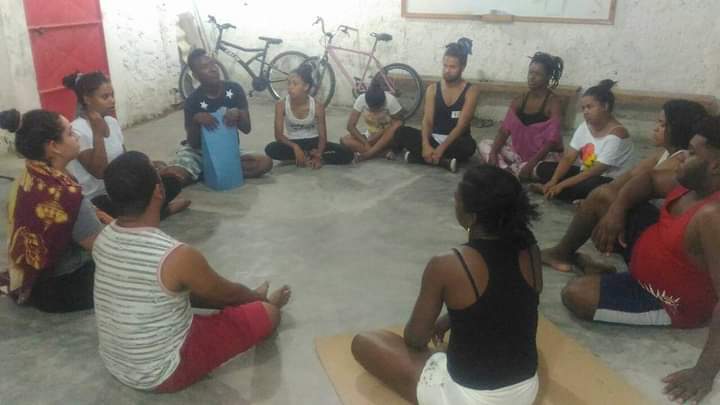
Rafaela Gomes has been part of maracatu since 2004 and, today, is a social educator, singer, producer and photographer for the group. She says that the need to formalize the cultural center dates back to 2007, when they carried out the first census of people who frequently participated in the spaces promoted by the group.
The inauguration actually came in 2011, and enabled not only the continuity of actions but also the expansion of operations in the territory. Currently, about a thousand people are associated, but many more are served. During the pandemic alone, it is estimated that about ten thousand people benefited directly or indirectly by the institution.
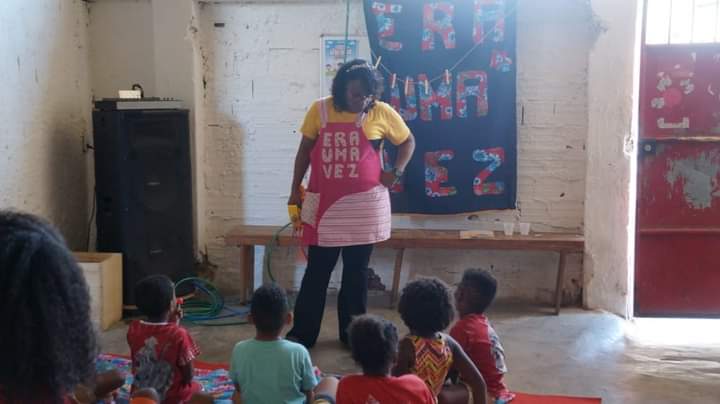

Literacy activities, tutoring, vocational courses and training in Afro-Brazilian music and dance are the hallmarks of Cambinda in Chão de Estrelas and in the surrounding communities, such as Capilé, Palha do Arroz and Favela do Arruda.


Afrobetizar Project
The Afrobetizar project, for children’s literacy, is one of the oldest ongoing actions and was conceived by Wanessa Paula Santos, who is the president of the cultural center.
Since 2016, the center also has TV Cambinda, created from the experience with the program Papo de Mestre, in which maracatu mestres talked about their nations. From partnerships and public notices, products such as musical lives, rehearsals, podcasts and interviews are broadcast through YouTube and Instagram.


In 2021, the group launched crowdfunding to fund the production of a series of 15 programs on the culture of Maracatu and the traditions of the Nations that give life and continuity to this genuinely Pernambuco black heritage.
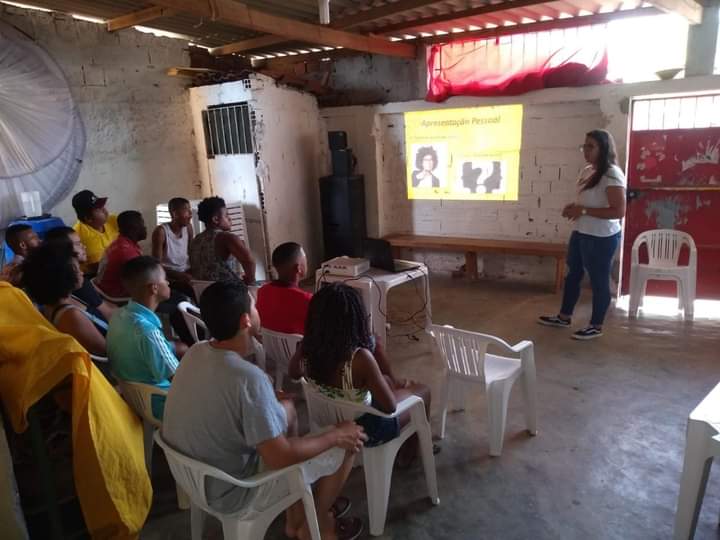

Maracatu is a very important cultural event for the protection of enslaved people and also for the practice of Candomblé in the 20th century. Annually, the Silent Drums Night takes place in Recife and Olinda to remember this history of resistance.
Actions during the pandemic
During the pandemic, the centre has not stopped working to try to guarantee access to food, cleaning products and education for all residents of the territories served. It is estimated that more than ten thousand people have been assisted since March 2020. “We have already helped a lot of people thanks to God, Xangô, Oxum and Oyá”, celebrates Rafa.
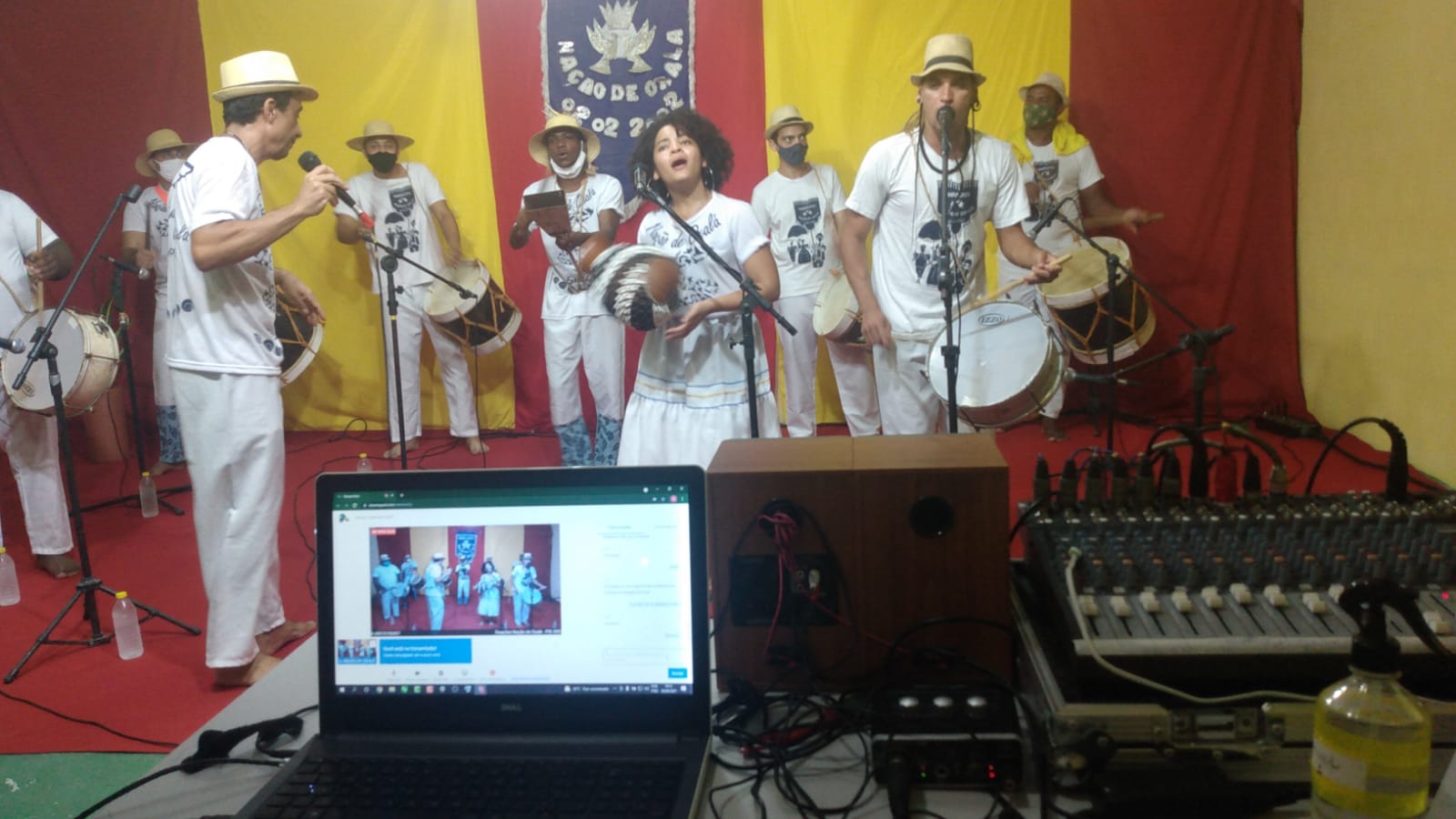

The Cambinda Estrela Cultural Center resists amid persecution from some community leaders and residents who try to harm and tarnish the group’s performance in the community. But “we have the force of nature with us”, trusts the social educator, and the group remains firm and strong with spontaneous collaborations that even work so that the unfounded complaints that are made do not get in the way of this path that has been trodden. brilliantly.
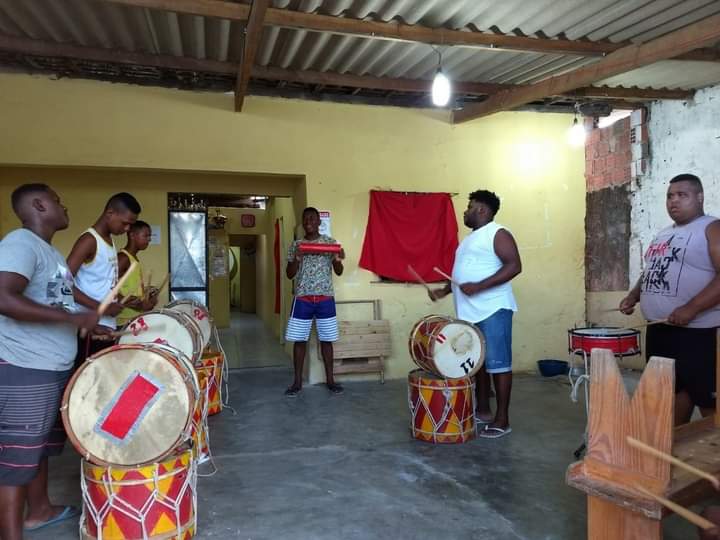

To learn more about the history of Maracatu Cambinda Estrela, check out this episode of the Habita Caminhos 2021 project, by Cia Caracaxá.


